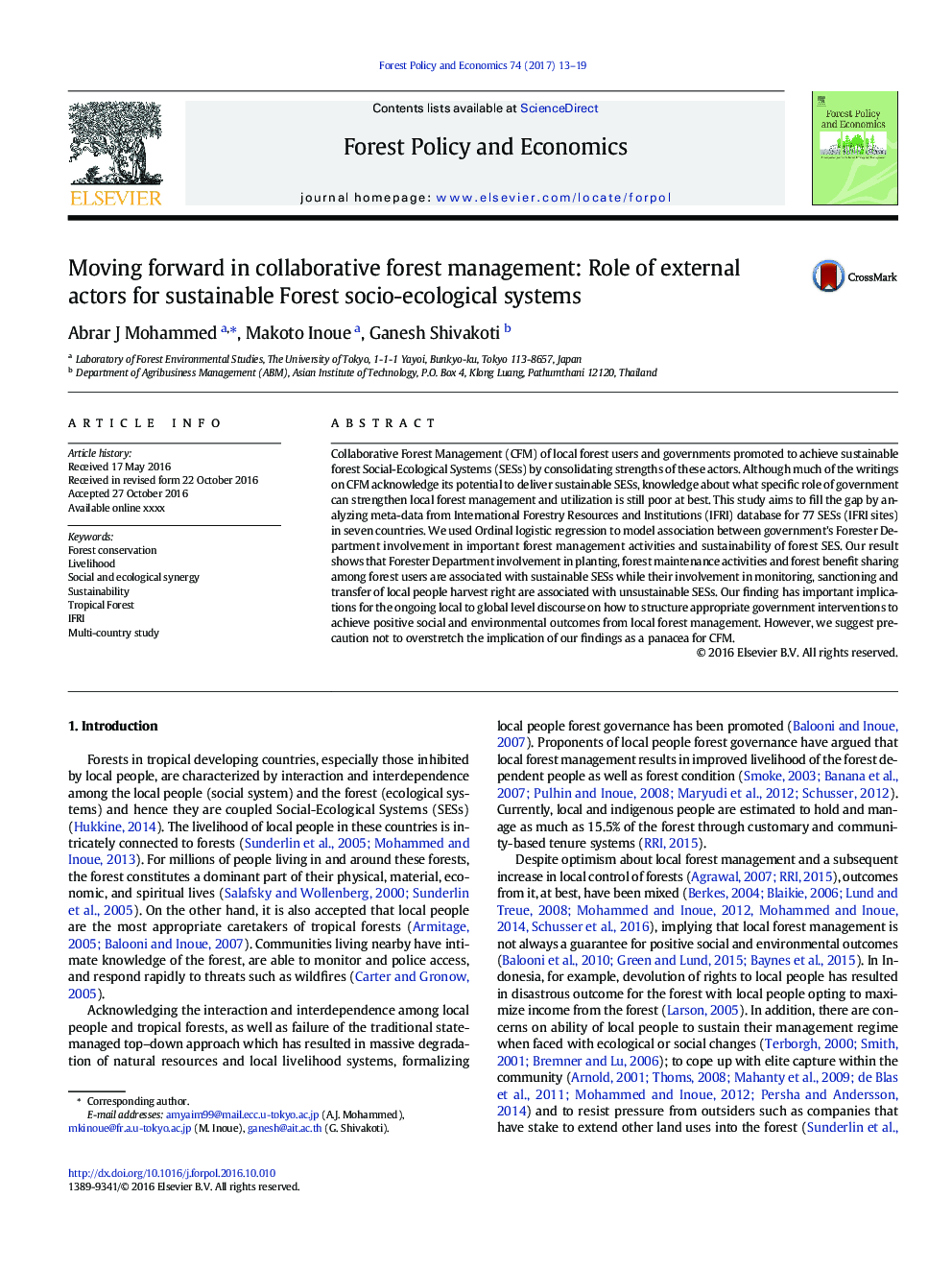| Article ID | Journal | Published Year | Pages | File Type |
|---|---|---|---|---|
| 4759812 | Forest Policy and Economics | 2017 | 7 Pages |
Abstract
Collaborative Forest Management (CFM) of local forest users and governments promoted to achieve sustainable forest Social-Ecological Systems (SESs) by consolidating strengths of these actors. Although much of the writings on CFM acknowledge its potential to deliver sustainable SESs, knowledge about what specific role of government can strengthen local forest management and utilization is still poor at best. This study aims to fill the gap by analyzing meta-data from International Forestry Resources and Institutions (IFRI) database for 77 SESs (IFRI sites) in seven countries. We used Ordinal logistic regression to model association between government's Forester Department involvement in important forest management activities and sustainability of forest SES. Our result shows that Forester Department involvement in planting, forest maintenance activities and forest benefit sharing among forest users are associated with sustainable SESs while their involvement in monitoring, sanctioning and transfer of local people harvest right are associated with unsustainable SESs. Our finding has important implications for the ongoing local to global level discourse on how to structure appropriate government interventions to achieve positive social and environmental outcomes from local forest management. However, we suggest precaution not to overstretch the implication of our findings as a panacea for CFM.
Related Topics
Life Sciences
Agricultural and Biological Sciences
Forestry
Authors
Abrar J Mohammed, Makoto Inoue, Ganesh Shivakoti,
